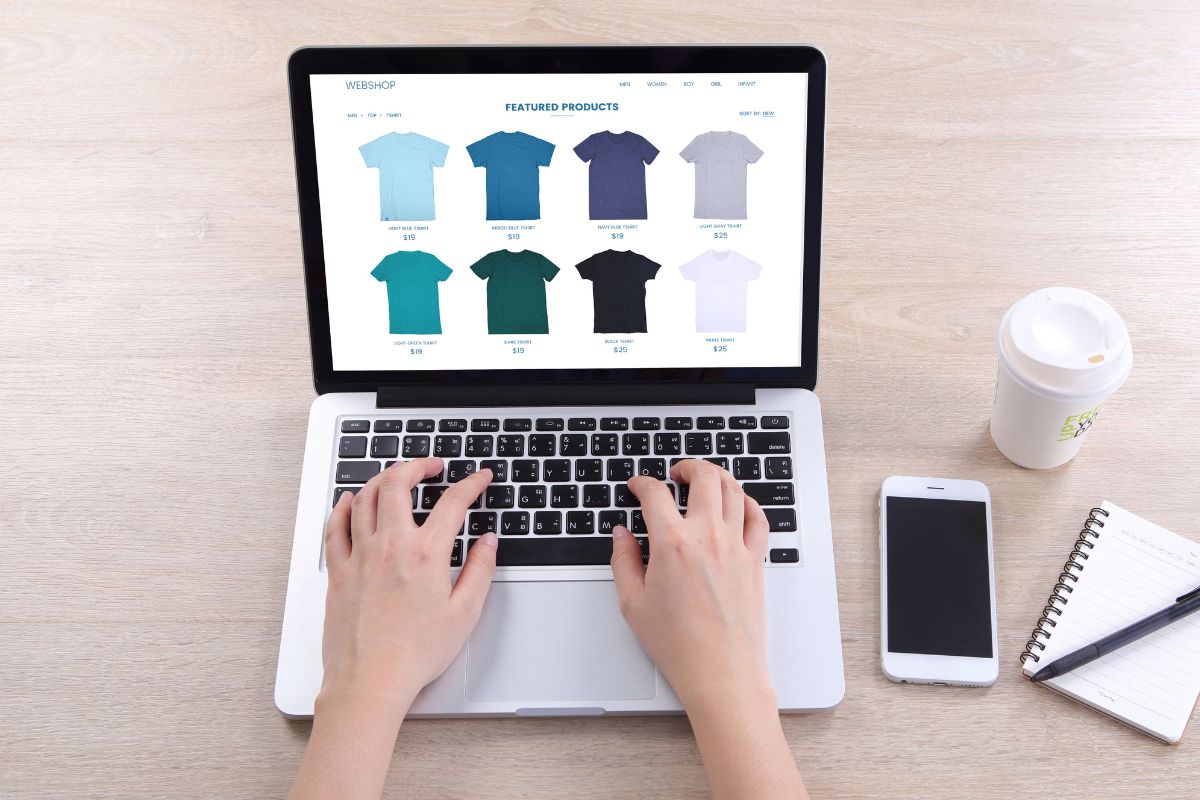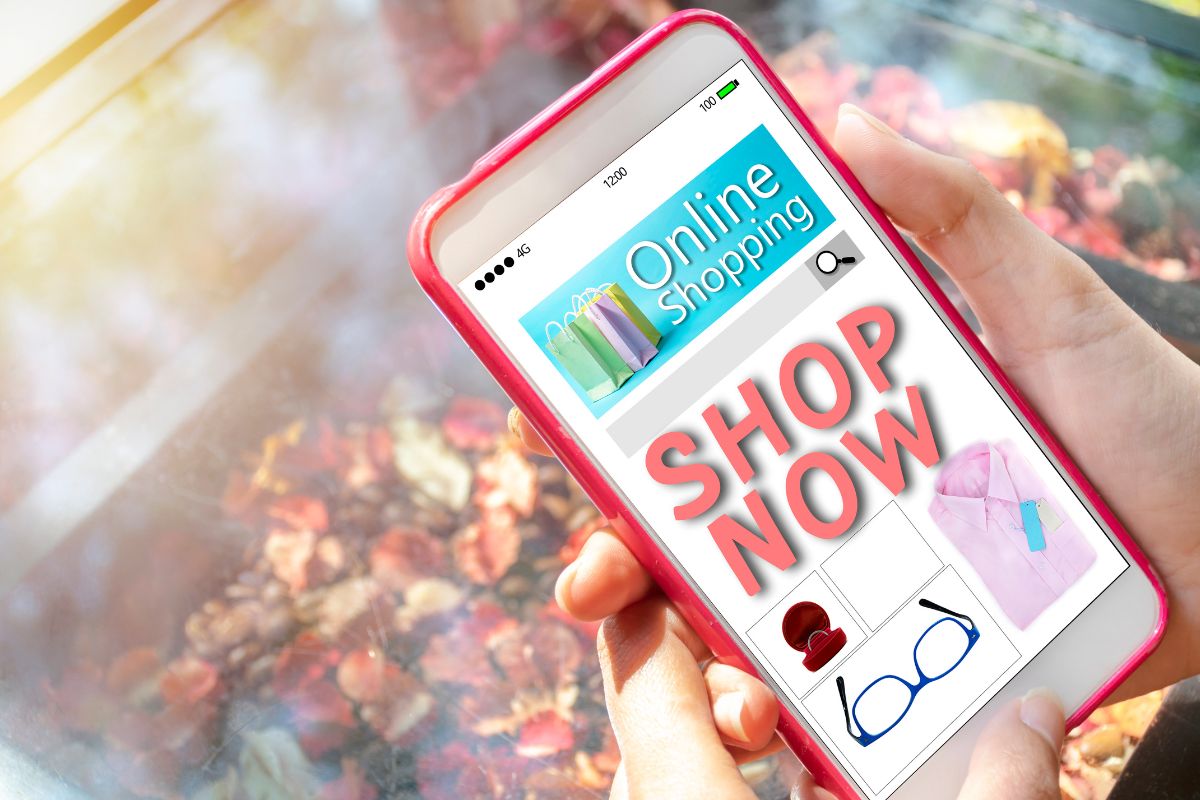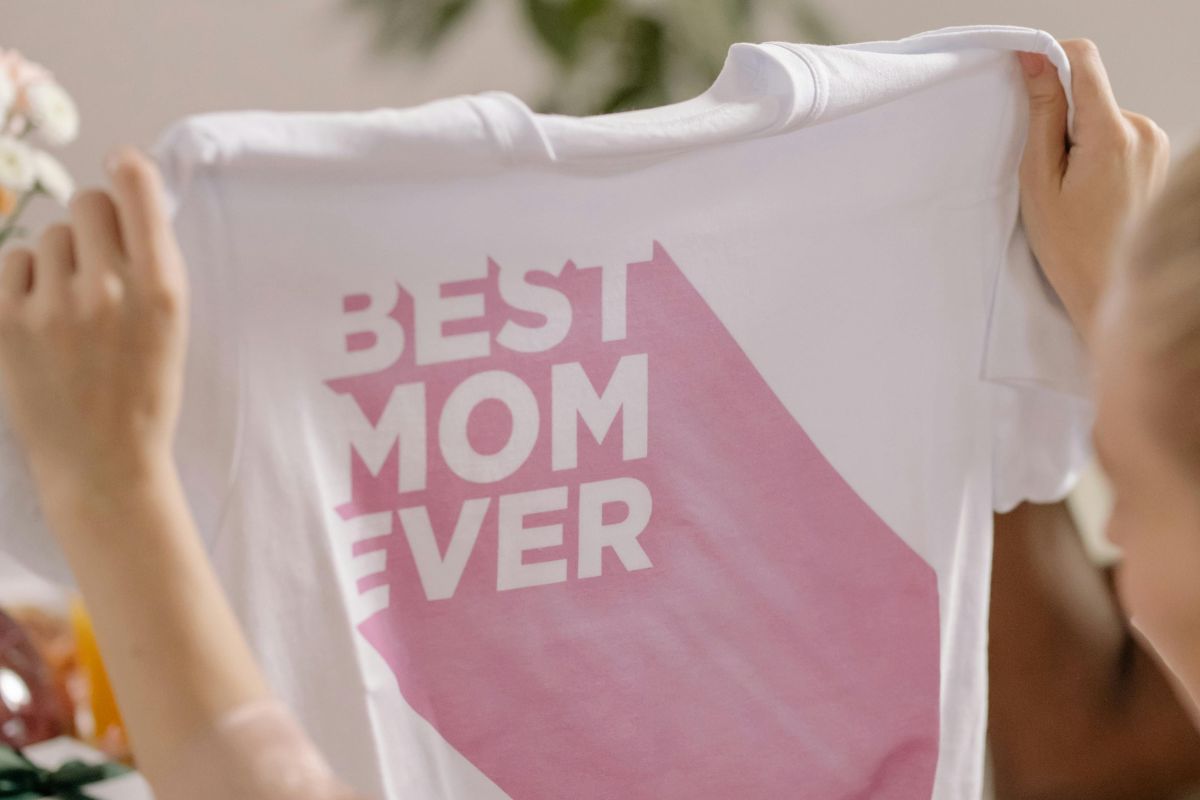Are you contemplating a venture into the realm of customized products, such as promotional merchandise that businesses eagerly seek during festive seasons like Christmas? This comprehensive guide elucidates the key steps to inaugurate and expand your personalized products business, with a focus on tailoring offerings like custom mugs, chic wallets, and branded corporate gifts.
Readers will unearth strategic insights into establishing a legal framework, crafting an impactful online presence, and deploying marketing strategies to burgeon their business footprint. This article is crafted to mitigate the typical hurdles entrepreneurs encounter in this niche, providing you with a clear roadmap to create a lucrative and customer-centric enterprise.
Table Of Contents:
- Key Takeaways
- Understanding the Customized Products Business Landscape
- Defining Your Customized Product Offerings
- Setting Up Your Customized Products Business Legally
- Establishing an Online Presence for Your Business
- Marketing Strategies to Grow Your Customized Products Business
- Managing Operations and Ensuring Customer Satisfaction
Key Takeaways
- Effective SEO strategies increase visibility for customized products
- Personalized marketing fosters strong connections and customer loyalty
- Streamlined order fulfillment enhances customer satisfaction and trust
- Gathering customer feedback drives product refinement and business improvement
- Strategic scaling plans are crucial for meeting peak demand periods
Understanding the Customized Products Business Landscape

The appetite for personalized items, such as the on-trend name necklace, is expanding, necessitating a deep dive into the niche markets that drive the industry. Specialists suggest rigorous market research is essential to discover profitable sectors in the United States and beyond, while keeping abreast of the key trends molding the customized products arena. These insights form the cornerstone of a successful business model, ensuring entrepreneurs lay the groundwork for a lucrative venture in customized goods. The subsequent sections delve into these critical areas, each offering valuable knowledge for prospective business owners.
Exploring the Demand for Customizable Items
Product customization has evolved as a significant driver in consumer markets, with entities like Casetify redefining what it means to own a personalized item. Business owners who prioritize consumer preferences can leverage this rising trend to create unique offerings that resonate on an individual level. Delivering personalized experiences not only fulfills a customer’s desire for uniqueness but also establishes a competitive edge in the marketplace.
The allure of custom products, from stylized stationery to bespoke pencil sets, has transformed consumer expectations, shifting the focus from mass-produced to made-to-order. Successful management of a customizable products business entails understanding these expectations and integrating flexibility into product design and fulfillment. This approach ensures that every item reflects the customer’s personal touch, therefore heightening the perceived value and attachment to the brand.
As the market gravitates towards goods that narrate a personal story, entrepreneurs must adapt by tailoring their end-to-end experience to accommodate customization. Insights into customer behavior and preferences guide product development, enabling businesses to craft relevant, highly sought-after customized solutions. Through this strategic move, companies not only meet but anticipate consumer demand, securing their position in a fluid and evolving industry landscape.
Key Trends Shaping the Customized Products Market
Here are some key trends shaping the customized products market:
- Personalization Demand: Consumers increasingly want unique, tailored products.
- Eco-Friendly Options: Sustainability is a big driver, with more demand for eco-conscious products.
- On-Demand Printing: Print-on-demand technology enables faster, flexible production.
- E-commerce Growth: Online shopping continues to boost customized product sales.
- AI and Design Tools: Advanced tools make it easier for customers to design products.
- Social Media Influence: Platforms like Instagram and TikTok drive visibility and engagement.
The rise of on-demand manufacturing has marked a transformative shift in the customized products market. This trend enables businesses to create personalized aprons, among other products, without the need for large inventory holdings, thus enhancing revenue potential by reducing overhead costs. Consequently, the business model leans towards agility and responsiveness to customer demands, facilitating the production of customized items with greater speed and efficiency.
In the realm of customization, advancements in digital imaging technology have empowered entrepreneurs to offer a higher degree of personalization. This development allows customers to imprint a chosen image onto an array of merchandise, elevating the conventional business gift to a more intimate and memorable token. Such technology fosters innovation and drives consumer engagement, as customers delight in the ability to manifest their unique vision on tangible products.
Lastly, the surge of e-commerce platforms has redefined how custom product businesses operate, streamlining the process from design to delivery. The ease with which customers can specify and order bespoke items stands as a testament to the evolution of the industry, creating avenues for increased revenue. Business owners must recognize and utilize these platforms to connect with their audience, thereby tapping into a broader market and driving further growth of their custom product ventures.
Create and sell your customized items from today
Identifying Profitable Niches in Customized Products
Within the sphere of a customized products business, identifying niches with high revenue potential is critical for achieving success. For instance, custom magnets for business offer a specific and recurring need, as companies regularly seek innovative ways to promote their brand. These items can easily be added to the cart of a business’s promotional inventory, dovetailing nicely with other marketing materials to enhance corporate visibility and customer recall.
An entrepreneur’s acumen in spotting trends can turn ordinary items into coveted commodities. Customized sneakers, for instance, have emerged as a vibrant niche, where unique designs meet individual fashion statements. A customized products business that specializes in footwear can cater to this demand, offering clients the ability to express their style through their sneakers, which often results in high customer retention and word-of-mouth referrals.
Success in the customization market hinges on the unique value proposition that the business offers: The essential story of value is captured in the following table:
A strategic exploration of market needs and niches can reveal less obvious opportunities, such as bespoke organizational tools or tech accessories. These items, although smaller in scale, can generate substantial profit when aligned with consumer trends and preferences, thus scaling the customized products business effectively.
Defining Your Customized Product Offerings

Selecting products ripe for customization is the foundation for any business in the niche of personalized goods. The process begins with identifying items such as custom patches or custom enamel pins with a high potential for advertising appeal. Quality sourcing of materials and suppliers is paramount to ensure product excellence, while innovative software aids in crafting unique designs that captivate clientele. Pricing strategies must balance market expectations with competitive positioning. Together, these elements form a cohesive framework for entrepreneurs to offer customized products that not only meet but exceed customer anticipations in this dynamic industry.
Selecting the Right Products to Customize
For entrepreneurs venturing into the realm of customized products, the initial step involves identifying which items hold the highest potential for personalization. As a seller, one may consider products made of durable materials such as stainless steel, which offers a sleek backdrop for custom engravings. The stainless steel bracelet, for instance, can be an attractive option, positioning one’s brand to capitalize on the market’s appetite for elegant, tailored jewelry.
It is essential for a business to furnish customers with information that not only details product offerings but also showcases the unique possibilities for customization. Whether dealing in simpler items like stationery or more complex custom corporate gifts, demonstrating the ability to infuse each product with individual character will resonate with consumers seeking to convey their identity or brand through bespoke items.
Success in the personalized products market hinges on the seller’s ability to discern market preferences and supply products that cater to them effectively. With the proper assessment, even common items can become lucrative when transformed into custom corporate gifts, providing businesses with a sense of individual recognition and appreciation that strengthens their professional relationships.
Sourcing Quality Materials and Suppliers
The foundation of a flourishing custom product business lies in the quality of the materials used. Merchandising customized items like cork coasters hinges on procuring materials that not only meet but exceed customer expectations for sustainability and durability. Entrepreneurs must therefore establish partnerships with suppliers renowned for their high-caliber cork, ensuring that the final product stands out in the competitive market.
Financial strategy is crucial when navigating the supply chain for customized merchandising. Business owners must balance the quality of materials like plush towels with budgetary constraints to maintain profitability. By negotiating favorable terms with reliable suppliers, businesses can provide luxurious custom towels without compromising their financial well-being, thus delivering value both to the customer and the bottom line.
Consistency in the custom product experience is key to building and retaining a loyal customer base. It demands diligent vetting of suppliers to guarantee that materials used in products, such as personalized towels or corporate gifts, remain consistent in quality and feel. Only by fostering strong relationships with suppliers can entrepreneurs ensure the dependable excellence of their personalized merchandise, pivotal to cultivating customer trust and satisfaction.
Creating Unique Designs That Attract Customers
To stand out in the market of personalized products, embracing a unique design philosophy is paramount. Entrepreneurs should offer demonstrations (demos) of customizable clothing lines that capture the latest fashion trends while allowing for the consumer’s personal taste to shine through. Aiming for a healthy profit margin, these unique designs serve as the hallmark of a brand, making it distinguishable and desirable to consumers seeking one-of-a-kind clothing.
Elevating the appeal of personalized products relies heavily on understanding the target demographic’s style preferences. For instance, incorporating contemporary design elements in custom clothing can significantly boost the perceived value, encouraging consumers to associate higher quality with the brand, and thus, potentially increasing the overall profit from sales. Insightful design choices lead to a vast catalogue of engaging products that resonate with customers, ensuring satisfaction and repeat business.
Exceptional design in personalized products goes beyond aesthetics; it incorporates functionality and the brand’s unique selling points. Entrepreneurs should prioritize user experience, ensuring that their custom designs are not only visually appealing but also practical for everyday use. This dedication to design superiority is essential for customer retention and establishing a strong market presence:
Setting Competitive Pricing Strategies
When determining pricing strategies, the customized products entrepreneur must carefully balance consumer expectations with production costs. For instance, incorporating a high-quality printer that ensures vibrant prints on custom bags must be reflected in the price, but at a rate customers deem fair and reflective of value received. Setting prices that satisfy the cost of creation and appeal to consumers is essential for sustainable business growth.
Understanding the market is crucial when pricing customized backpacks or similar items. Entrepreneurs should perform competitor analysis to ensure their pricing is both attractive to customers and in line with industry standards. They must consider the added value their customization service brings to the product, which often justifies a higher price point that discerning customers are willing to pay for personalized goods.
Secret Tip: is to offer tiered pricing with added value rather than discounts alone. Instead of solely lowering prices, create tiers that provide progressively better value (like bundles, extra customization, or exclusive perks).
Ultimately, a successful pricing strategy for a customized products venture demands transparency with consumers. Clear communication about the costs associated with personalization, such as the use of advanced printers or premium materials, aids in justifying price points and builds trust with customers. Entrepreneurs must strive to align their pricing with the perceived value of the product, ensuring that the client feels compensated in quality for every dollar spent.
Setting Up Your Customized Products Business Legally

Embarking on the journey to launch a customized products business entails a thorough understanding of the legal landscape. Entrepreneurs must choose the appropriate business structure that supports their goals, whether they are creating personalized blankets, customized pens for business, or unique jerseys for sports enthusiasts.
Registering the business name and safeguarding trademarks prevent potential legal conflicts, crystallizing the business’s identity in the marketplace. Familiarity with legal requirements and regulations is paramount, ensuring compliance with industry standards and minimizing risk. Additionally, protecting intellectual property is crucial, as it secures the rights to novel designs and innovative concepts integral to products such as birthday-themed personalized toys. These steps are fundamental in laying the groundwork for a resilient and lawful business operation.
Choosing the Appropriate Business Structure
Selecting an appropriate business structure is a fundamental step when launching a customized products venture, such as a shop specializing in custom magnets or personalized engraving on various materials like plastic. Entrepreneurs must consider how the chosen legal framework will impact everything from taxing obligations to liability issues. For example, a sole proprietorship may be suitable for someone targeting a market of small businesses seeking custom products, but as the operation grows, a transition to a limited liability company (LLC) could provide enhanced protection and benefits.
In the context of custom products, understanding the nuances of each business structure can inform decisions regarding investment, expansion, and risk management. If an entrepreneur intends to produce custom magnets in bulk with intricate plastic engraving, forming an LLC might be advisable to protect personal assets from business debts or legal actions. This entity type also offers the flexibility of pass-through taxation, which is often favorable for small to medium-sized businesses.
When an entrepreneur’s target market comprises corporations and large-scale events that require high-quality custom products, forming a corporation could be beneficial. Corporations can raise capital more easily through the sale of stock, which is enticing for a business that plans to invest heavily in equipment for detailed engraving on both plastic and metal items. However, this comes with increased regulatory scrutiny and a more complex tax structure. Entrepreneurs must weigh these factors to ensure the longevity and financial viability of their custom products business:
Registering Your Business Name and Trademarks
Securing the legal rights to a business name and trademarks is a pivotal step for entrepreneurs specializing in promotional items for business. This registration process not only cements the brand’s identity but also provides exclusive rights to use specific designs and colors that may become synonymous with the product, such as the unique hues used in custom nylon products.
To navigate trademark registration effectively, businesses should consider the broad scope of their offerings, whether extending to intricate candle scents or the robust material of nylon backpacks. A thorough trademark search ensures that the business name and symbols do not infringe on existing trademarks, thereby averting potential legal disputes and fostering strong customer service foundations through brand protection.
Once registered, businesses can vehemently defend their intellectual property against unauthorized use, which is essential to maintaining the integrity of the brand. This legal safeguard empowers businesses to cultivate an esteemed reputation, critically important when dealing with promotional items for business that rely on distinctiveness in color, design, and customer service excellence.
Understanding Legal Requirements and Regulations
Understanding and adhering to legal requirements and regulations are crucial for entrepreneurs launching a customized products business, especially when producing items that integrate automation in the personalization process. For those offering customized sweatshirts or wedding keepsakes, compliance with consumer safety regulations and industry standards can help avoid legal pitfalls and ensure customer trust. Entrepreneurs will find value in staying informed about the legislative landscape, which can directly influence product development and fulfillment strategies.
When creating customized goods such as personalized pens, businesses must ensure they follow intellectual property laws to protect both their designs and those of their clients. Navigating the complexities of copyright and patent laws with expertise is essential to maintain the integrity of unique creations. By securing the appropriate protections, business owners safeguard their innovations and assert their rights within the competitive market, fostering a secure foundation for their brand.
For those venturing into the realm of customizable products, establishing a comprehensive understanding of tax implications and e-commerce regulations is paramount to sustainable operations. Entrepreneurs focused on delivering custom goods must account for taxation nuances that may affect both the sale of physical goods like pens and the digital services employed for customization. Expert navigation through these regulations not only bolsters the legality of the operation but also reassures customers looking to purchase customized items with confidence and peace of mind.
Protecting Your Intellectual Property
For entrepreneurs embarking on the creation and sale of custom-made items such as ink-stamped keychains, protective water bottles adorned with unique designs, or advanced technology in product personalization, safeguarding intellectual property is a paramount concern. Securely patenting these innovations prevents others from replicating or profiting from one’s unique business assets, preserving the distinctiveness that defines their brand in the marketplace.
Entrepreneurship in the customized products sector often involves developing and employing proprietary technology or designs that give a competitive edge. When an entrepreneur invents a novel method to customize a bottle or creates an intricate keychain design, it is essential they protect their work through relevant patents or copyrights. This action not only serves as a deterrent against infringement but also bolsters the company’s valuation and appeal to potential investors or buyers.
Thoroughly navigating the legalities involved in trademarking ensures that a business’s identity and assets, such as its logo on ink-based products or the unique mechanism of a customized keychain, remain exclusive. This protection extends to every aspect of the company’s product line and branding efforts, establishing legal recourse in the event of unauthorized replication and reinforcing the brand’s integrity in the eyes of customers and competitors alike.
Establishing an Online Presence for Your Business

In today’s dynamic e-commerce landscape, an authoritative online presence is crucial for the success of a customized products business. Building a user-friendly e-commerce website ensures seamless order fulfillment and enhances the shopping experience. Showcasing your customized products, be it wood crafts, steel engravings, or pet accessories, effectively on this platform is vital for attracting customers. Moreover, implementing robust online payment and security measures instills trust and safeguards transactions, a critical investment for any online venture. Lastly, leveraging social media allows for direct engagement with your target audience, expanding your brand’s reach and influence.
Building a User-Friendly E-Commerce Website
In constructing a user-friendly e-commerce website, entrepreneurs must integrate precise, accessible tools that enable customers to visualize and customize products such as cutting boards effortlessly. A streamlined interface where users can easily select options and see real-time price updates enhances the online shopping experience. This direct approach caters to the demand for transparency and convenience in e-commerce, addressing customer pain points related to complex website navigation.
Effective fulfillment systems are vital for a customized products business, particularly for items with a high degree of personalization like paper stationery. Ensuring that the website’s backend can handle order variations seamlessly lays the groundwork for efficient and reliable delivery services. This portrays the business’s commitment to meeting consumer demand while fostering trust and repeat patronage through prompt and accurate fulfillment.
The key to a successful e-commerce site lies in its capacity to adapt to changing consumer preferences and market trends. Incorporating predictive analytics and advanced search filters can scale the business to meet an increasing influx of orders for personalized products, thus maintaining its competitive edge. The following table exemplifies the attributes of a user-centric design that propels a customized products business to optimal online performance:
Showcasing Your Customized Products Effectively
To effectively showcase customized products like personalized cups, entrepreneurs need to prioritize high-quality images and detailed product descriptions. It’s crucial to include pictures from various angles and contexts to give customers an accurate feel for the items, which in turn, enhances customer satisfaction and can lead to positive reviews that boost the business’s credibility.
Utilizing data and analytics to understand customer preferences allows businesses to tailor their online showcases, thus increasing the relevance and appeal of products like custom cups. By tracking page views and customer behavior, entrepreneurs can adjust their offerings in real time, ensuring a personalized shopping experience that caters to current market trends and customer desires.
The website should clearly communicate the delivery timelines and options for customized products, addressing a common customer concern: the wait time for personalized items. Offering a ‘free trial’ feature for a digital mock-up of the customization can aid in the purchasing decision, reassuring customers of the final product’s look before committing to the order:
- Present product images that accurately reflect the item’s quality.
- Analyze customer data to optimize product placement and descriptions.
- Detail delivery options and offer free trials of digital product mock-ups.
Implementing Online Payment and Security Measures
To establish a secure and customer-friendly online payment process for customized products, such as custom logo bags, entrepreneurs should offer a variety of payment options that cater to different preferences. These variants must smoothly integrate with the business’s e-commerce platform, allowing for a seamless transition from the personalization stage to the final purchase. By providing a mockup of the item alongside a streamlined checkout, customers feel confident in their tailored selections and the transaction’s security.
Security measures are non-negotiable in print on demand e-commerce, particularly when personal information and custom designs are involved. A business should implement robust encryption protocols to protect customer data during payment processes. Operational transparency regarding these security protocols reassures clients who entrust their personal and payment details while ordering their customized items, enhancing customer trust and loyalty.
Effective payment security also includes fraud detection systems capable of safeguarding both the business and its clientele from unauthorized transactions. Regularly updating these systems ensures protection against the latest threats, which is critical for maintaining a protected environment for transactions. This mindful approach to security prompts customers to return, knowing their personalized purchases, like custom logo bags, are handled with utmost care:
Leveraging Social Media to Reach Your Target Audience
For entrepreneurs harnessing the potential of mass customization, social media emerges as an indispensable tool for reaching and engaging with their target audience. Platforms like Instagram and Pinterest are ideal for showcasing personalized gifts and custom bags, creating visual narratives that resonate with consumers’ desires for unique products. The key to a successful social media strategy lies not just in displaying products, but in fostering connections through customer experiences that tell a brand’s story.
By leveraging social targeting capabilities, a business can ensure its customised offerings, such as engraved accessories or bespoke apparel, reach the ideal customer demographic. Use of data-driven insights allows for precise targeting, optimizing social campaigns to attract consumers who value and seek out personalized experiences. Deploying such tailored communication strategies amplifies the brand’s reach and strengthens the customer experience:
Interactive content on social media platforms offers an exceptional opportunity for businesses to enhance customer engagement with their brand. Real-time feedback on custom-designed products can provide invaluable insights, allowing businesses to refine their offerings rapidly. Moreover, utilizing social media as a listening tool, businesses can monitor discussions about their products, ensuring that customer experience remains at the forefront of their mass customization approach.
Marketing Strategies to Grow Your Customized Products Business

In the competitive space of customized products, effective marketing strategies are pivotal for business expansion. Utilizing SEO to increase online visibility places a business’s offerings, like promotional pens for small business, directly in view of its target audience. Engaging Customers Through Personalized Marketing taps into the personalized nature of the products, while Collaborating With Influencers and Partners and Running Promotions and Special Offers to Boost Sales, can significantly attract and retain consumers within this niche market. This section imparts a strategic approach to reach, engage, and convert potential customers through focused and value-driven marketing efforts.
Utilizing SEO to Increase Online Visibility
To enhance the online visibility of a business that offers customized blankets, entrepreneurs should commence with a robust SEO strategy. Focusing on keyword integration, content around plush, personalized blankets infused with artisan designs can attract enthusiasts seeking comfort and individuality. By optimizing product pages and blog posts with terms such as “customized blanket,” “personalized throw,” and “design your own blanket,” businesses position themselves to capture organic search traffic from potential customers who value unique, cozy home accessories.
Owners of customized product businesses specializing in ceramic items must recognize the importance of SEO in reaching a discerning clientele. The use of specific keywords like “hand-painted ceramic mugs” or “custom ceramic plates” within product descriptions and metadata can drive targeted traffic to their e-commerce platforms. Such strategy not only elevates the brand’s visibility but also caters to those searching for unique, artisanal tableware or bespoke ceramic gifts, thereby nurturing a niche customer base focused on quality and craftsmanship.
When promoting customized leather goods or stickers, SEO plays an integral role in reaching markets that appreciate craftsmanship and personalization:
- For leather items, incorporating keywords related to “leather journal,” or “customized leather wallets” can resonate with shoppers looking for durable, handcrafted accessories.
- Stickers require a different approach, targeting creative audiences with terms such as “custom sticker design” or “personalized vinyl stickers,” appealing to individuals and businesses alike.
In both instances, the judicious application of SEO techniques assures higher relevance and recognition in search engine rankings, crucial for businesses that strive to standout in the customized product market.
Engaging Customers Through Personalized Marketing
Personalized marketing is a potent tool for a business specializing in custom merchandise for business, particularly when the brand’s story is woven into each communication. The narrative behind a custom stationery set, when shared through personalized emails or targeted social media posts, fosters a connection with the client, demonstrating understanding and commitment to their unique preferences. It positions the brand as a thoughtful partner, not just a vendor, aligning with customers’ desires to reflect their identity through the products they select and use.
The power of personalization can extend beyond the product to the entire customer experience. When a customer makes contact with a business, whether inquiring about a personalized wine glass or placing a bulk order for branded merchandise, the response they receive should be tailored and insightful. These interactions form the bedrock of customer loyalty, translating personal touches into lasting business relationships.
Engaging customers with personalized marketing strategies includes a number of critical steps:
- Identifying the customer’s individual needs and preferences.
- Designing marketing messages that speak directly to those interests.
- Utilizing customer data to refine product recommendations and communications.
By employing these personalized approaches, a company enhances the value proposition of its custom merchandise for business, ensuring that every engagement strengthens the brand and catalyzes growth.
Collaborating With Influencers and Partners
Entering into strategic partnerships with influencers can significantly boost the visibility and desirability of a business’s custom product offerings like personalized koozies or crafted notebooks. These collaborations often lead to an influx of interested customers who follow influencers for their recommendations, effectively translating online endorsements into increased sales and revenue.
For customized products businesses, selecting the right influencers is a nuanced process that involves aligning with individuals whose brand values reflect their own, especially if their inventory includes unique items like specialized notebooks or event-specific koozies. This synergy between influencer and product not only appeals to potential customers during their online shopping adventures but also reinforces the business’s reputation for quality and innovation.
Investing money in influencer partnerships can yield a high return on investment when executed with precision. Influencers can create authentic content that showcases the appeal of a business’s customized products, inspiring their audience to engage in online shopping and purchase items like a uniquely designed notebook or a tailor-made koozie for their next social event.
Running Promotions and Special Offers to Boost Sales
Implementing time-sensitive promotions and special offers has proven to be a powerful strategy to stimulate shopping activity and increase sales for a company specializing in bespoke products. By presenting customers with limited-time discounts or bundled deals, businesses can create a sense of urgency that encourages prompt purchasing decisions. This tactic effectively reduces potential hesitations related to cost and accelerates the buying cycle.
Crafting an exclusive range of templates for customizable items during promotional periods can entice new and existing customers to engage with the company’s offerings. A suite of seasonally themed designs or commemorative templates adds a freshness to the product lineup, spurring shoppers to capitalize on these unique, temporary offerings. This approach not only boosts immediate sales but also positions the company as a go-to source for current, trend-aligned bespoke products.
For businesses that aim to expand their customer base, offering first-time buyer incentives is a strategic method to attract shoppers to their customized products. Whether it’s a discount on the initial purchase or a complimentary upgrade to premium customization options, these special offers can significantly lower the entry cost for new customers. Such incentives foster a welcoming shopping experience, encouraging novices to explore the pleasure and prestige of owning bespoke items from the company.
Managing Operations and Ensuring Customer Satisfaction

Effective management of operations and ensuring customer satisfaction are pivotal in the realm of customized products. Streamlining the order fulfillment process, especially during peak holiday seasons, is essential for maintaining a smooth workflow and an efficient supply chain. Providing excellent customer service is just as vital, as it creates positive experiences, boosting the reputation of businesses that offer unique items like custom pins.
Furthermore, gathering and implementing customer feedback is invaluable for refining products and services, including those that require intricate graphic design. Planning for business growth and expansion ensures the longevity and scalability of the enterprise. Each of these topics forms an integral strategy for entrepreneurs aiming to excel in a competitive market.
Streamlining the Order Fulfillment Process
Streamlining the order fulfillment process begins with the integration of advanced customization software, which enables businesses to automatically translate customer preferences into production specifications. This technology minimizes errors and shortens production times, facilitating a more rapid transition from sale to delivery. As a result, customers receive their personalized items expediently, reinforcing their satisfaction and the likelihood of repeat business.
Embedding an API within the online platform allows for seamless communication between the business’s website and its fulfillment centers. For entrepreneurs in the customized products sector, such integration is vital. It automates the flow of order details, ensuring that each customer’s specifications are precisely captured and enacted upon. This step not only accelerates the fulfillment process but also helps maintain a consistent sale price by reducing manual intervention and potential discrepancies.
To maintain a competitive edge, businesses must enable a system that adapts in real time to fluctuating order volumes, particularly during high-demand periods. By deploying scalable solutions within their fulfillment strategy, companies can adjust their operations dynamically, ensuring each customer’s order is processed with the same level of efficiency and accuracy—regardless of whether it’s peak season or a more regular sales period. This adaptability contributes to maintaining customer trust and secures the business’s reputation for reliability.
Providing Excellent Customer Service
For businesses specializing in personalized items, providing excellent customer service is a linchpin of success. From a unique bottle opener that serves as a memorable gift to a custom credit card holder that reflects a buyer’s style, customer inquiries and satisfaction are to be handled with utmost priority. A swift and helpful response to customer questions regarding their Shopify product details or the status of their hoodie order instills confidence and fosters loyalty.
Customer service in the realm of customized products includes a proactive approach: anticipating common queries and ensuring the customer’s journey is seamless and pleasant. Here’s a snapshot of key services that expedite customer satisfaction:
- 24/7 support for urgent inquiries and assistance.
- A user-friendly guide on the website for tracking and managing orders.
- A comprehensive FAQ section that covers customization options and payment processes.
Furthermore, businesses must leverage feedback for continuous improvement, integrating customer suggestions into their services and products. When a customer invests in a personalized gift like a hoodie or a shop-specific Shopify product, the business’s ability to tailor the shopping experience to individual needs can turn a single purchase into a long-term patronage. This customer-driven model ensures that operations are aligned with consumer expectations, cementing the business’s reputation for exceptional service.
Gathering and Implementing Customer Feedback
Gathering customer feedback is a strategic business practice that can significantly enhance a company’s competitive advantage. For businesses operating on WooCommerce or similar platforms, implementing simple feedback tools, such as surveys or review prompts post-purchase, can yield invaluable data. Such insights, especially for mass-produced items like tote bags, allow businesses to refine their offerings and cater to the evolving demands of the retail market.
Implementing customer feedback effectively requires a structured approach: First, a business should systematically collect and analyze the data. Then, establish which areas, such as product design for a custom tote bag, require enhancement or re-evaluation. This process not only optimizes the user experience but also contributes to a more robust and appealing product portfolio, attracting a broader customer base seeking unique personalized items.
User critiques and suggestions deliver tangible insights that drive the betterment of operations – from website navigation improvements on WooCommerce stores to the practical functionality of a tote bag. Smart businesses leverage such feedback to streamline the purchasing process, offering a competitive advantage in the saturated personalized retail sector. They prioritize customer preferences, knowing that a refined, customer-centric approach typically results in positive word-of-mouth and higher retention rates.
- Systematically collecting and analyzing customer feedback.
- Identifying areas for product and experience enhancement.
- Implementing changes to optimize user experience and product appeal.
Planning for Business Growth and Expansion
For entrepreneurs whose specialty lies in crafting customized products, such as custom coffee mugs, strategic planning for scaling operations is key to capitalizing on peak sales periods like anniversaries, holidays, and commemorative events. It involves assessing and expanding production capacity to ensure that increased demand can be met without sacrificing quality or delivery timeframes, which are crucial for maintaining customer satisfaction and retention.
Business growth often necessitates diversifying product lines and capabilities; hence, introduction of new technologies that streamline the customization of varied merchandise, including laptops and other tech accessories, can significantly boost efficiency. As companies grow, adopting automation and technological advancements in mass production and personalization processes can elevate throughput while upholding the bespoke nature of their offerings.
Expanding one’s business footprint may also mean exploring new markets or broader demographics, emphasizing the importance of targeted marketing campaigns that convey the unique value of personalized items. By showcasing the ability to transform everyday objects like coffee mugs and laptop cases into memorable keepsakes for anniversaries and special occasions, businesses can tap into emotional purchasing triggers and drive long-term sales growth.




Sign up